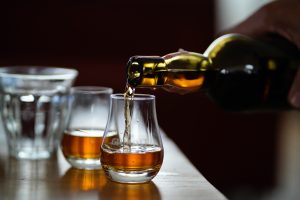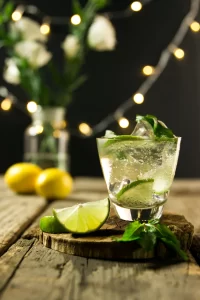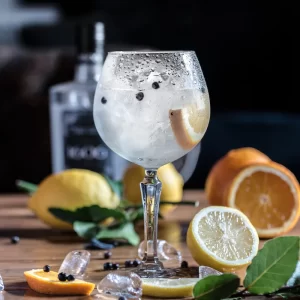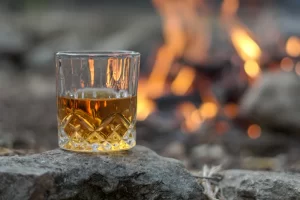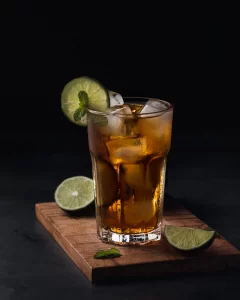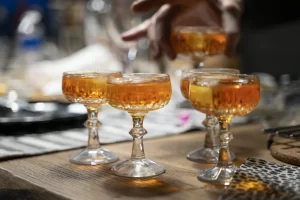Vermont Liquor Laws And Regulations
If you were considering what the alcohol laws and regulations were in Vermont you might be surprised to find that they are one of the most complex states to consider. Vermont has a lot of laws around alcohol, especially for sellers/retail. Stick around as we cover Vermont liquor regulations and laws.
For distillers, it is not too bad, and getting a license is not too complicated, but make sure that you are aware of the proceeds and application fine print. Vermont is also a control state, which we will get into later.
Buying Liquor In Vermont
In Vermont, there is something of a unique arrangement when it comes to alcohol sales. The state contracts private retailers for the sales of alcohol, instead of operating state stores.
This means that beer and low-alcohol wines are generally available at grocery and convenience stores. Meanwhile, retail stores will be allowed to sell alcohol from 6 am until midnight, while bars and restaurants will be allowed to serve alcohol from 8 am until 2 am.
Legal Drinking/Serving Age

Vermont is no different from the rest of the United States, you must be at least 21 years of age to consume any alcohol.
However, this being said, you can serve alcohol in a restaurant or as a bartender from age 18, and you can even work in a liquor store from 16 years of age.
The laws regarding the drinking age are heavily influenced by the Vermont Department of Liquor and Lottery.
This is a state government of Vermont that is responsible for the distribution, purchasing, and selling of distilled spirits through agency stores.
They also enforced the alcohol and tobacco statutes in Vermont as well and have a very strong emphasis on the limitations on youth access.
Vermont’s Open Container Law
Vermont also has something which is known as a container law. This means that no previously opened bottle of alcohol can be transported in the primary compartment of a vehicle and must instead be kept enclosed in the car’s trunk by law. This law is common in other states as well and is not unique to Vermont’s liquor laws and regulations.
Blood Alcohol Content Law
Vermont is also very strict on BAC levels.
A driver who has a BAC level which is over 0.8% is considered to be intoxicated ‘per se’, meaning that the state would require no more evidence than their BAC to prosecute the driver for driving under the influence of alcohol.
However, Vermont does not have any enhanced BAC penalties, which some states do have to provide more harsh punishments for drivers who are intoxicated in excess.
Those who are under the age of 21 and are driving are discouraged from drinking and driving via a 0 tolerance law, which limits the driver to have a 0.2% blood alcohol content.
Should a driver under the age of 21 have a blood alcohol content over 0.2% they will suffer penalties associated with a DUI.
Penalties
Implied consent laws are signed whenever a driver gets their license in Vermont. Under these implied consent laws the driver agrees to always comply with an officer of the law upon request for a blood, breath, or urine test to check for intoxication.
Should a driver refuse to cooperate with any chemical testing can result in a mandatory suspension of their license for up to a full year.
The penalty for driver’s license suspension for DUIs is 90 days for the first offense, and 18 months for the second offense, and should a third offense occur their license will be revoked permanently.
Penalties as such are conducted by the DMV.
The expensive penalty of permanent or temporary confiscation of a vehicle due to a DUI conviction is likely in Vermont, especially if there is a third offense.
Education about alcohol abuse, treatment, and assessment can be ordered by a court, that being said, the state of Vermont does not support the mandatory installation of ignition interlock devices.
Service Restrictions In Vermont

In Vermont Happy Hour and other service structures are restricted.
Licensees cannot offer single-priced, unlimited drink specials, give free drinks, or promote or encourage any organized games which award alcohol as prizes or promote drinking in excess.
In likeness with these laws, licensees may also not offer a Happy Hour special after 10:00 pm, and they cannot serve more than one drink to one person at any given time either.
What Are Control States?
After Prohibition was abolished in the U.S. in 1933, each state managed its distribution and sale of alcoholic beverages. They determine if a local government will control sales and distribution as an ABC or allow this to occur via private retail.
There are 17 ABC states in the U.S., some own all liquor stores, and some control distribution to private retail.
Control through government agencies is wholesale, but 13 states see this control extend into retail off-premises consumption.
Vermont is an ABC state, however, the state also controls minimum costs for a customer as well. In Vermont, spirits are sold through agents from the type of store they operate, not by the state.
This can provide state-wide distribution for distilleries.
An example would be ‘Mad River Distillers’. Manufacturing spirits in a Control State for them have provided state-wide distribution while distributing out of state is more complex, but in-state distribution is much wider with many more options.
Manufacturing Licenses & Restrictions
If you want to open your distillery in Vermont, then you can get a license.
You can get a distillery license in Vermont which costs $285 on an annual basis. You would need to submit a request to get a license to manufacture spirits for this which is known as a TT 5110.41 basic permit.
However, if you also needed a license for the distillery itself and your distillery equipment this would require a TTTB 51100.24 Distilled spirit plant license.
Overall
While the phrase ‘control state’ might seem intimidating, control states help to stave off public health concerns in the state, as well as fund the state itself, going towards state costs.
Control states do not run marketing initiatives, or limited-time offers to encourage the purchase of alcoholic beverages, however, they can help sales of distilleries in the state and open up more doors for distilleries who know how to use control states to their advantage.
So, if you’re an aspiring distiller looking to open up a distillery in Vermont, you may have made a good choice, just make sure you understand how control states work before you delve into this!
